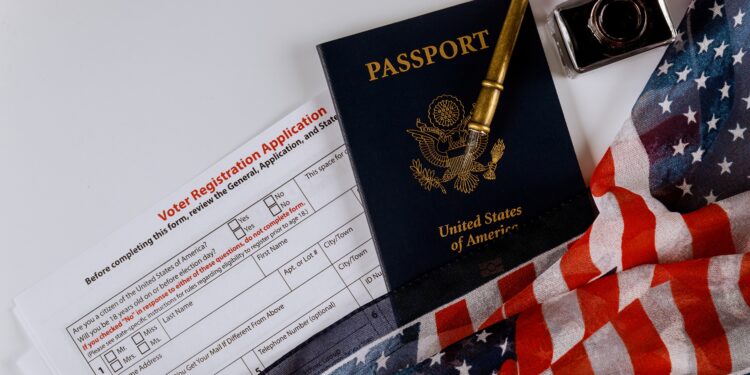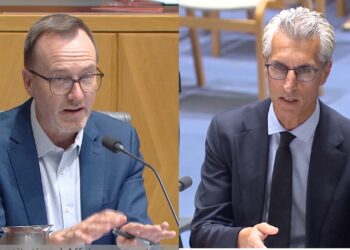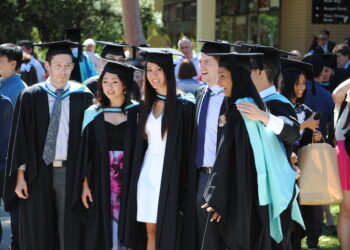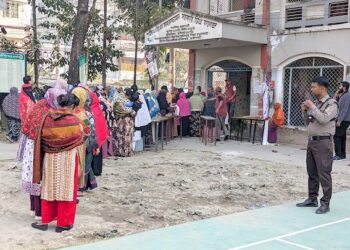The United States has long been a global leader in artificial intelligence (AI), a position significantly bolstered by the contributions of foreign-born talent. However, recent immigration policies, particularly those affecting the H-1B visa program, may undermine this leadership. This article examines the potential conflict between the current administration’s AI objectives and its restrictive immigration stance, highlighting the critical role of international professionals in sustaining America’s AI dominance.
The Integral Role of Immigrants in U.S. AI Development
Immigrants have been pivotal in advancing AI within the United States. A study by the National Foundation for American Policy revealed that nearly two-thirds (65%) of the top AI companies in the U.S. were founded or co-founded by immigrants. Furthermore, international students comprise 70% of full-time graduate enrollments in AI-related fields, underscoring the reliance on foreign talent for innovation and research.
These statistics underscore the indispensable role that foreign-born professionals play in maintaining and enhancing the U.S.’s competitive edge in AI. Their contributions span from groundbreaking research to the establishment of leading AI enterprises, driving economic growth and technological advancement.
The H-1B Visa Program
The H-1B visa program enables U.S. employers to hire foreign workers in speciality occupations requiring specialized knowledge. While it has been instrumental in attracting top-tier talent, the program has faced increasing restrictions. During President Trump’s first term, initial denial rates for H-1B visas rose from 4% to 17%, reflecting a more stringent approach to skilled immigration.
These heightened restrictions pose challenges for the tech industry, which relies heavily on H-1B visas to fill critical roles. The potential for further limitations under the current administration raises concerns about the ability to attract and retain the talent necessary for AI innovation.
The Administration’s AI Vision
In January 2025, President Trump issued an executive order emphasizing the importance of sustaining and enhancing America’s global AI dominance to promote economic competitiveness and national security. The order mandates the development of an action plan within 180 days to achieve these objectives.
While the executive order outlines ambitious goals for AI advancement, it notably lacks provisions addressing immigration reform. This omission is significant, given the critical role that foreign-born talent plays in the AI sector. Without facilitating the entry and retention of skilled professionals, the administration’s AI aspirations may face substantial hurdles.
Industry Perspectives and Concerns
Industry leaders have expressed apprehension regarding the disconnect between the administration’s AI ambitions and its immigration policies. Elon Musk, CEO of Tesla and SpaceX, has been vocal about the need for comprehensive reform of the H-1B visa system, describing it as “broken” and in need of major changes.
Musk’s stance highlights a broader concern within the tech community: restrictive immigration policies may deter top talent from contributing to the U.S. AI ecosystem, thereby hindering innovation and competitiveness.
The Economic Imperative of Skilled Immigration
The U.S. faces a significant shortage of skilled professionals in STEM fields, particularly in AI. The domestic education system currently does not produce enough graduates to meet the growing demand in these sectors. Consequently, companies rely on the H-1B visa program to fill critical positions that are essential for innovation and maintaining global competitiveness.
Restrictive immigration policies threaten to exacerbate this talent gap, potentially leading companies to relocate operations abroad where talent is more accessible. This shift could result in a decline in the U.S.’s leadership in AI and related technologies, with long-term economic implications.
Balancing Security and Innovation
While national security concerns are valid, it is crucial to balance these with the need for innovation. Overly restrictive immigration policies may inadvertently stifle the very innovation that contributes to national security. A nuanced approach that includes thorough vetting processes without discouraging skilled immigrants is essential.
Implementing policies that streamline the immigration process for individuals with critical skills in AI and other STEM fields can help maintain the U.S.’s competitive edge while addressing security concerns.
Recommendations for Policy Reform
To align immigration policies with AI ambitions, the following measures could be considered:
- Revise H-1B Visa Caps: Increase the annual cap on H-1B visas to reflect the current demand for skilled professionals in AI and other critical sectors.
- Implement Merit-Based Immigration: Prioritize visa applicants with expertise in high-demand fields to ensure that the U.S. attracts top global talent.
- Facilitate Permanent Residency: Streamline the process for H-1B visa holders to obtain green cards, reducing uncertainty for employers and employees.
- Enhance Domestic STEM Education: Invest in education and training programs to develop a robust domestic pipeline of AI talent, reducing reliance on foreign workers in the long term.
By adopting these measures, the U.S. can create an environment that fosters innovation while addressing security and economic concerns.
Final Thoughts
The intersection of immigration policy and technological innovation presents a complex challenge for the United States. While the administration’s commitment to maintaining AI leadership is commendable, achieving this goal necessitates a re-evaluation of current immigration policies. Embracing skilled immigrants through programs like the H-1B visa is not merely a matter of opportunity but a strategic imperative to sustain and enhance the nation’s position in the global AI landscape.











